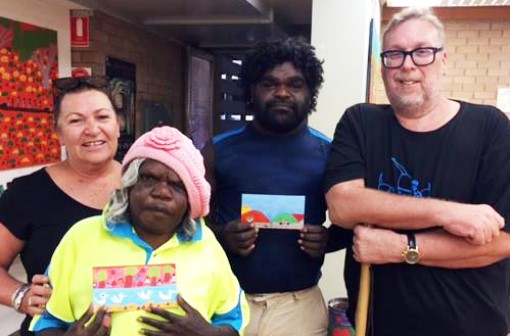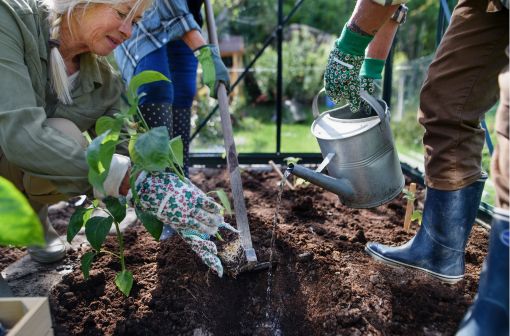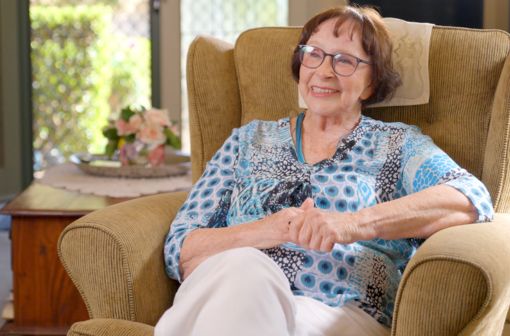“If we’re going to heal and move forward, we need proper recognition, instead of having these debates year after year; Australia Day, or the national anthem, what we can and can’t do, if it’s just part of general business, we’re all in a better place.” —June Riemer, Deputy Chief Executive Officer, First People’s Disability Network (FPDN)
Key points
- NAIDOC Week can only help to elevate awareness around official recognition, making a stronger case for Indigenous voices to be heard and acknowledged.
- Employment opportunities, incarceration rates, poverty, education disadvantages, and other sociological and socio-economic factors are all inequities that need to be urgently addressed.
- The FPDN works for the recognition and support of First Peoples with disability and their families, giving a voice to the concerns and needs of some of the most seriously disadvantaged members of the Australian community.
The national theme for NAIDOC Week in 2019 is “Voice. Treaty. Truth. Let’s work together for a shared future.”
For June Riemer, Deputy Chief Executive Officer, First People’s Disability Network (FPDN), there has never been a better time to talk about that shared future, one that includes fully-enshrined recognition for Aboriginal and Torres Strait Island people.
June has been with the FPDN for almost a decade and says it’s the next generation of Indigenous people who will help create a lasting change in the conversation around constitutional reform that fully embraces First Nation peoples.
“I think that’s the focus of NAIDOC about sharing that cultural experience with people and standing with our heads held high, especially for the next generation,” she says. “The next generation have pride in who they are and where they come from. I think what’s needed is to acknowledge our place here. The only way we’re going to move forward is if we’re recognised in the constitution, or some form of treaty.
“It’s like everything in life, we take our first lessons from our parents, so if you move that in to the respect of whatever governing body (it) is, if they’re not showing respect to First Nation people, then why would the rest of the population think it’s important?”

Resolving differences
June says events such as NAIDOC Week can only help to elevate awareness around official recognition, making a stronger case for Indigenous voices to be heard and acknowledged.
With 2019 being celebrated as the United Nations Year of Indigenous Languages, June believes that both sides – Indigenous people and State and Federal governments – need to come together and resolve any differences to ensure the development and ratification of a Treaty within the Australian Constitution.
“I think Reconciliation (Week) and NAIDOC and all these days are getting bigger every year, and that’s a good thing, and the general population is getting more involved. I think it’s just a time thing,” she says. “If we’re going to heal and move forward, we need proper recognition, instead of having these debates year after year; Australia Day, or the national anthem, what we can and can’t do, if it’s just part of general business, we’re all in a better place.
“No-one has to feel shame on either side. I think at the moment we all walk in a bit of a trance where everyone feels a bit shamed about it. It’s unfinished business. It’s like you have a fight with your best friend or your partner; until you resolve it, you walk around not in a good place.”
Treaty not the only priority
However, June does caution that while a Treaty is important in terms of official recognition, there are more pressing concerns for Indigenous people closer to home.
Employment opportunities, incarceration rates, poverty, education disadvantages, and other sociological and socio-economic factors are all inequities that need to be urgently addressed.
“The flip side for a lot of our communities and people, it [a Treaty] isn’t the priority,” June says. “The priority is putting food on the table. There’s so much disadvantage, we have so many communities living in Third World conditions. The highest incarceration rates, the highest of everything in the world. It’s pretty sad really.
“There’s a long way to go still. Yes, people want to acknowledge and think it’s time for truth-telling but there’s still a lot of other unfinished business.”
About the FPDN
The First Peoples Disability Network Australia is a national organisation that proactively advocates for Australia’s First Peoples with disability, their families and surrounding communities.
The FPDN works for the recognition and support of First Peoples with disability and their families, giving a voice to the concerns and needs of some of the most seriously disadvantaged members of the Australian community.
Working within a social model of disability, in which ‘disability’ is the outcome of barricades to equal involvement in everyday society, the FPDN was born from the efforts of advocates to bring much-needed attention to the very specific needs of indigenous people with disability. This social model of disability is quite different to the standard medical model of disability, which generally emphasises a diagnostic approach.
June believes that acknowledging that all Australian indigenous people have an official role to play in the future of the nation is a critical first step towards reconciliation. In particular, sharing culture, tradition and spirituality is of paramount importance.
“The sad part is people are happy to travel the world and see other nations and take home cultural experiences, but because of what’s happened in our past history in Australia, it’s a shame job to take on Aboriginal culture,” she says.
“That comes from our history of being colonised. That’s like the debate going on now about whether or not it’s appropriate to climb Uluru. As someone said to me, ‘well it’s not like you go to India and climb the Taj Mahal’, (and that’s) because you respect it as a sacred place. But for some reason, even though it’s had the signs up for years, people don’t acknowledge that respect about it being a cultural, traditional and spiritual place.
“We need to lead by example and we hope that we will get to that place. I think in time, we will get there, Victoria seems to be moving forward on it and maybe it’s the states doing the business first. I think overall, 70-80% of the population acknowledge and want it (a Treaty) and think it’s a good thing; it’s a small minority that for some reason, I don’t know what the fear of the government is.
“New Zealand and other countries have all made treaties a long time ago and acknowledged language and culture. All New Zealanders know Maori and it’s a proud tradition. They’re all proud to celebrate that culture but here it seems to be a shame job.
“I think for our history, that’s how it is; it just keeps going on and on, instead of resolving and recognising. Yes, there were lots of wrongs done, but we’re moving forward now and for me, that’s what Reconciliation is, acknowledging the First Nation people.”
Disclaimer: Information provided in this article is of a general nature. Australian Unity accepts no responsibility for the accuracy of any of the opinions, advice, representations or information contained in this publication. Readers should rely on their own advice and enquiries in making decisions affecting their own health, wellbeing or interest. Interviewee names and titles were accurate at the time of writing.


